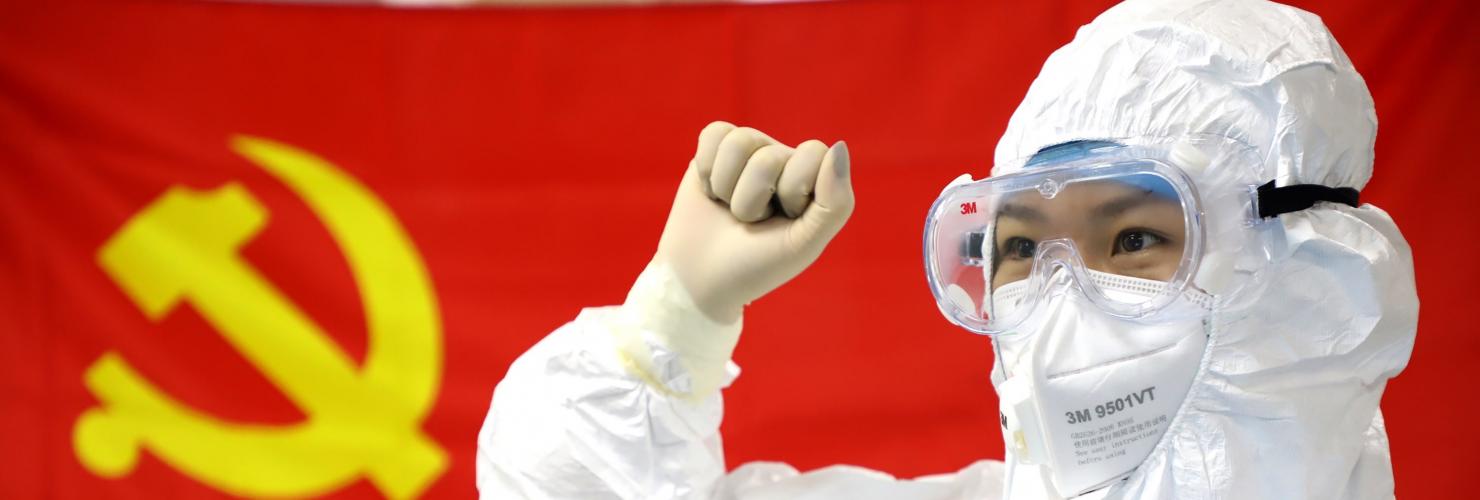

COVID-19 and the CCP: Who said Chernobyl?
As the coronavirus pandemic sends governments reeling across the world, the CCP looks set to emerge strengthened from this crisis, proving once again its exceptional resilience, says Thomas des Garets Geddes.
Just a few weeks ago, China watchers, human rights champions and defenders of the free world were tingling with excitement – this was it, Covid-19 was going to be China’s Chernobyl moment. They were sure of it. Their WeChat accounts were teeming with outraged messages directed against the CCP. The Chinese were at last losing faith in the Party. This was the turning point they had all been waiting for… Alas! Fast-forward to today and the CCP looks set to emerge strengthened from this crisis. It appears to have proved them all wrong once again.
A massive response and the CCP is back on track
To redeem itself from its initial cover-ups and belated response to the crisis, Beijing has had to go all out. Its response has been massive – as has its propaganda campaign. A recent Weibo post by the People’s Daily sums up some of its feats: entire hospitals built in days, 42,000 doctors and nurses sent to Hubei in record-breaking time, the near tripling of China’s production capacity of face masks in just nine days, and the list goes on. By February 14, only three weeks after Wuhan’s lockdown, new cases had already started to plummet. A month later, there were practically no more recorded. In the meantime, Hubei and Wuhan officials had been scapegoated and punished, Li Wenliang – the now deceased coronavirus whistleblower – was being re-appropriated by the CCP and described as a model party member, and Xi Jinping had made his victorious visit to Wuhan. As one Chinese friend said to me, the CCP had “acknowledged its mistakes and corrected them” (知错就改了). She was satisfied with their response.
The CCP reaps the benefits of the West’s blunders
Her approval of Beijing has grown in recent weeks as she has witnessed the chaos that has taken over many countries in the West. She is not alone. Many in China have been left baffled by the inability of our professedly superior liberal-democratic political systems to contain the epidemic and, more importantly, save lives. Why did Italian and Swiss members of parliament initially ridicule others for wearing masks? Why did European governments not prohibit large public gatherings sooner? Why had we not learned from China’s experience? The Chinese press has been replete with chilling stories from abroad: prison riots, overrun hospitals, people left to die at home. The UK’s “herd immunity” approach has become the laughingstock of Chinese social media. As for the Trump administration, it has drawn ridicule and disdain for its blunders and attacks against China.
A whiff of nationalism is in the air
Truth be told, a certain degree of Chinese schadenfreude has accompanied soaring case numbers in Europe and the US. China has proved its detractors wrong, and it has proved to itself that it can deal with public health emergencies better than we can. The Chinese have had enough of being criticized and told how incompetent their government is. They have had enough of the Western media’s “double-standards” (双标) – first denouncing Chinese quarantines, then praising Italy’s a few weeks later. But sensitivities run deeper than this. Western countries are China’s former imperial foes – those very nations at the hands of which it suffered its so-called “century of humiliation” (百年国耻). Those may be distant memories for us Westerners, but such wounds are still raw in the PRC. For many in China, the CCP is delivering on its promise of bringing about the great rejuvenation of the Chinese nation (中华民族伟大复兴). This makes many a patriotic heart beat louder.
The world owes China a debt of gratitude
How proud they are, too, to be witnessing their country lead the world’s response to the pandemic. And how proud they were when Dr Bruce Aylward, who co-headed the WHO-China Joint Mission on Coronavirus, declared that “if I had COVID-19, I [would] want to be treated in China”. For many in China, its benevolent government (仁政) has gone further than simply safeguarding the welfare of its own citizens – it has shown magnanimity towards those who have repeatedly criticized it. Beijing insists that, unlike America, “China has not and will not restrict the export of medical goods”. China’s social media has been awash with videos of selfless Chinese medical personnel arriving in foreign countries, laden with much-needed supplies. Dubious clips of Italians playing the Chinese national anthem and shouting “Grazie Cina” from their balconies have amassed tens of millions of views. So have statements by heads of state thanking China for its support. And what to say about the widely-viewed footage of Aleksandar Vucic, Serbia’s president, kissing the Chinese flag and declaring that “European solidarity does not exist … I believe in my brother and friend Xi Jinping, and I believe in Chinese help”? The world, don’t you know, now owes China and its government a debt of gratitude (感恩).
The CCP appears to have proved its doomsayers wrong once again. First it was the arrival of the internet and the spread of social media, then SARS in 2003, or even the Wenzhou train crash in 2011. Each was supposed to be something of a “Chernobyl moment” for China – the beginning of the end for the CCP. But challenges like these present governments not only with risks, they also provide them with opportunities to consolidate or even bolster their legitimacy. Yes, a new outbreak of the virus could still hit China. Yes, its economy could suffer even more dearly, and power struggles could still take place at the top of the party. But what we should all know by now is that the CCP is particularly good at one thing, and that is staying in power.